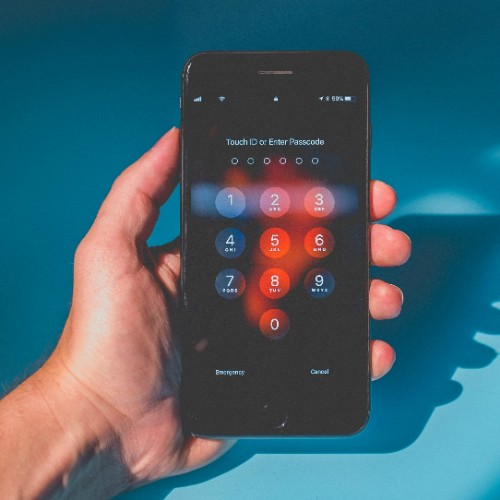5 mobile phone security tips to help protect your phone
July 2, 2018

We don’t just use our phones for calls and texts these days – nope, we use them for so much more. From social media and keeping in touch with friends and family to checking work emails, banking and paying for stuff.
We’re basically walking around with phone-sized computers in our pockets – they’re packed with our personal information. That’s why mobile phone security is so important.
If it feels like a bit of a minefield, here are some tips on how to protect your phone.
Use a password
An unlocked phone can be an easy target for someone that’s looking to pick up some of your information.
The easiest ways to stop that is to lock your screen using a passcode, pattern, or your fingerprint. And, if you’re dreading the thought of having another passcode to try and remember, don’t worry. With some of the newer phones like the iPhone 11, you can use Face ID – facial recognition to unlock it. Or, if the new Samsung Galaxy S10 is more your bag, you can use their innovative, Ultrasonic Fingerprint scanner instead. It uses ultrasonic waves to map your fingerprint and anti-spoofing tech to sniff out any fake fingerprints. Clever, huh?
Get yourself a phone case
Nothing makes your heart sink quite like the sound of your phone hitting the floor. So grab a protective case and screen protector and save yourself the heartache of scooping up a smashed phone.
Make sure you’ve got insurance too – that way if the worst does happen, you can get back up and running ASAP.
Install an antivirus app
As we mentioned earlier, we use our phones for so much now that they’ve pretty much replaced our laptops and PCs. Now, that’s a lot of personal info to be carrying around in your pocket.
It’s not just laptops and PCs that can get infected by viruses, malware, and spyware – phones can too.
You wouldn’t think twice about installing anti-anti-virus software to protect your computer, so why should your phone be any different?
Manufacturers like Samsung and Huawei have pre-installed anti-virus protection, but you can get anti-virus apps too. They check for any threats or harmful software that you may have downloaded by mistake. If you find anything suspicious, you can remove it using the app too.
Just remember to download any anti-virus apps from a trusted source like Google Play Store or the App Store.
Check app permissions
What are app permissions anyway? They’re those pop-ups that you quickly tap “okay” to when trying to download a new app. It might not seem very important, but they determine exactly what your new app can access once installed. So, it’s a good idea to pay attention to what you’re allowing.
If you want to check which permissions you’ve already agreed to, you can find them in your phone settings. You can change them there too, if you need to.
Watch out for open Wi-Fi networks
Open or public Wi-Fi networks can be a welcome sign – especially if you’re desperately trying to save your precious data allowance. But before you connect and start checking work emails or your online banking – remember that open Wi-Fi networks aren’t secure. Connecting to one could put your info at risk.
Why not treat yourself to a new SIM with Unlimited data instead? That way, you’ll never have to worry about running out of data or needing to use open Wi-Fi again.
These mobile phone security tips will help to keep your phone and the information stored on it, safe and secure.
Fancy finding out what security measures the latest phones have to offer? Register your interest today and be the first to know about new phone releases coming to Three.